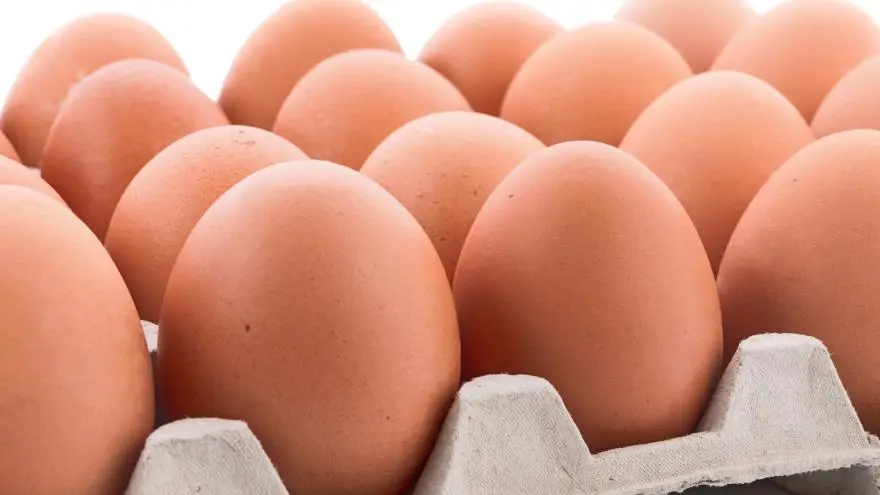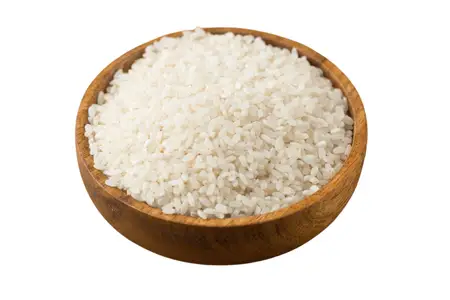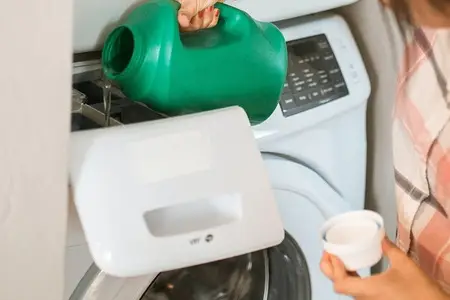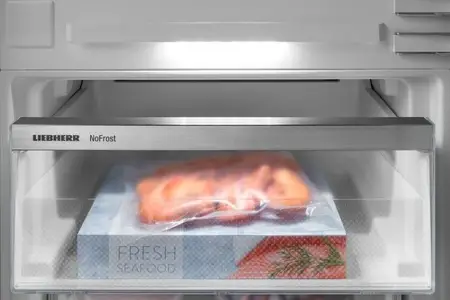It’s best to store eggs in the refrigerator. But did you also know that you shouldn’t keep shocked eggs (eggs that have been plunged into cold water after boiling) for as long? Here you’ll learn what you need to consider when storing eggs and how to recognize if they’re still suitable for consumption.

The most important points in brief:
- Raw eggs have a mandatory best-before date of 28 days after laying.
- Eggs can be kept in the refrigerator for up to six weeks.
- Once eggs have been stored in the refrigerator, they should no longer be stored at room temperature.
Sensory Check: Look, Taste, Smell
Eggs have a relatively long shelf life. If eggs smell rotten when cracked open, you must not consume them. For dishes with raw eggs, it’s best to use the freshest eggs possible. Ensure very good kitchen hygiene, refrigerate these dishes, and consume them promptly.
The best-before date must be indicated on the egg packaging. Only rarely is it found directly on the egg next to the egg code.
Tip:
To find out if an egg is already older, do the water glass test. If the egg floats on the surface, it’s already a few weeks old. This is because the older an egg gets, the larger the air chamber becomes, as air penetrates the inside over time and the egg itself loses moisture. You should then only consume the egg after thoroughly heating it. Very fresh eggs remain at the bottom.
You can also shake the egg.
- If you don’t hear any sound, it’s fresh.
- But if it sloshes, it’s already older.
With boiled eggs, you can recognize spoilage when they become fibrous or smell rotten. Don’t consume them anymore if this happens.
How do I best store eggs?
Store eggs preferably in the refrigerator at a maximum of 7 degrees Celsius. The egg compartment in the refrigerator door is not so well suited for this. Eggs are exposed to temperature fluctuations due to the constant opening and closing of the refrigerator door.
Important: Once refrigerated, always refrigerated. Eggs don’t like temperature differences. A temperature increase causes condensation on the shell and damages the natural protective layer, allowing germs to enter the inside.
Since eggs absorb foreign odors, don’t store eggs next to strongly smelling foods. To avoid possible salmonella transmission, egg shells should not touch other foods.
Tip: You can also freeze raw eggs. Either crack the egg and mix the yolk with the white, or freeze both separately.
How long do raw eggs last?
The shelf life depends on the temperature. If raw eggs are stored at 2 to 6 degrees Celsius, they will last 4 to 6 weeks; at a higher refrigerator temperature, the shelf life is reduced.
After the best-before date has passed, only consume eggs that have been thoroughly heated. Even though microorganisms may be present on the eggshell – do not wash eggs before storing them. The protective layer of the eggshell will be damaged, allowing germs to enter.
Raw eggs with damaged shells should be used immediately and only for thoroughly heated dishes.
How long do boiled eggs last?
Hard-boiled eggs that have not been cooled with cold water and whose shells are intact will last up to 4 weeks when stored at 2 to 6 degrees Celsius.
Cooling eggs in cold water reduces their shelf life because the temperature difference can cause cracks in the shell, allowing microorganisms to enter. Therefore, you should consume hard-boiled eggs with visible damage promptly.
What else you should know
Eggs can be divided into four weight categories of quality class A:
- Small (S): under 53 grams
- Medium (M): 53 to under 63 grams
- Large (L): 63 to under 73 grams
- Very large (XL): 73 grams and more
Each egg is stamped with a producer code, this provides information about how the laying hens were kept and where the eggs come from.





